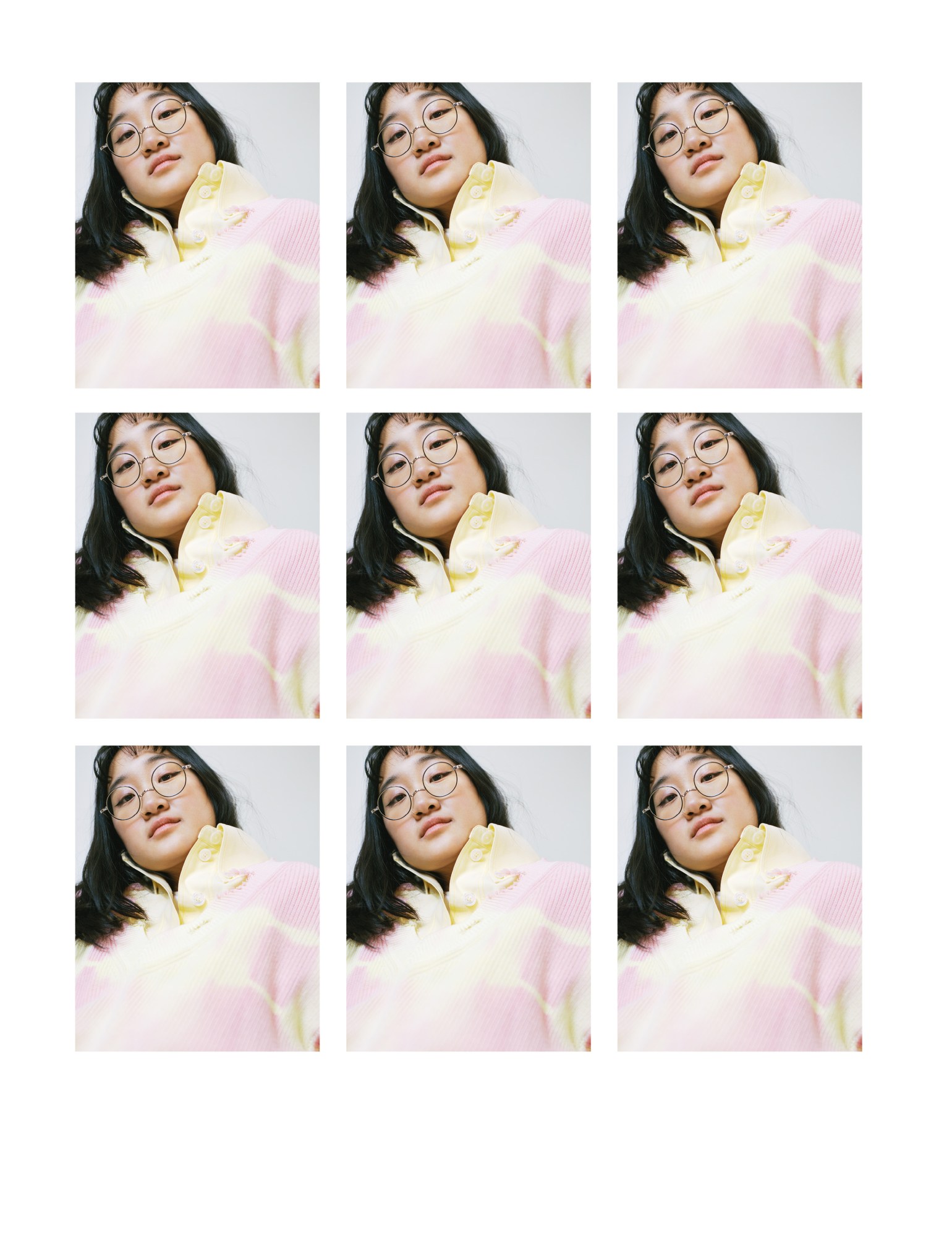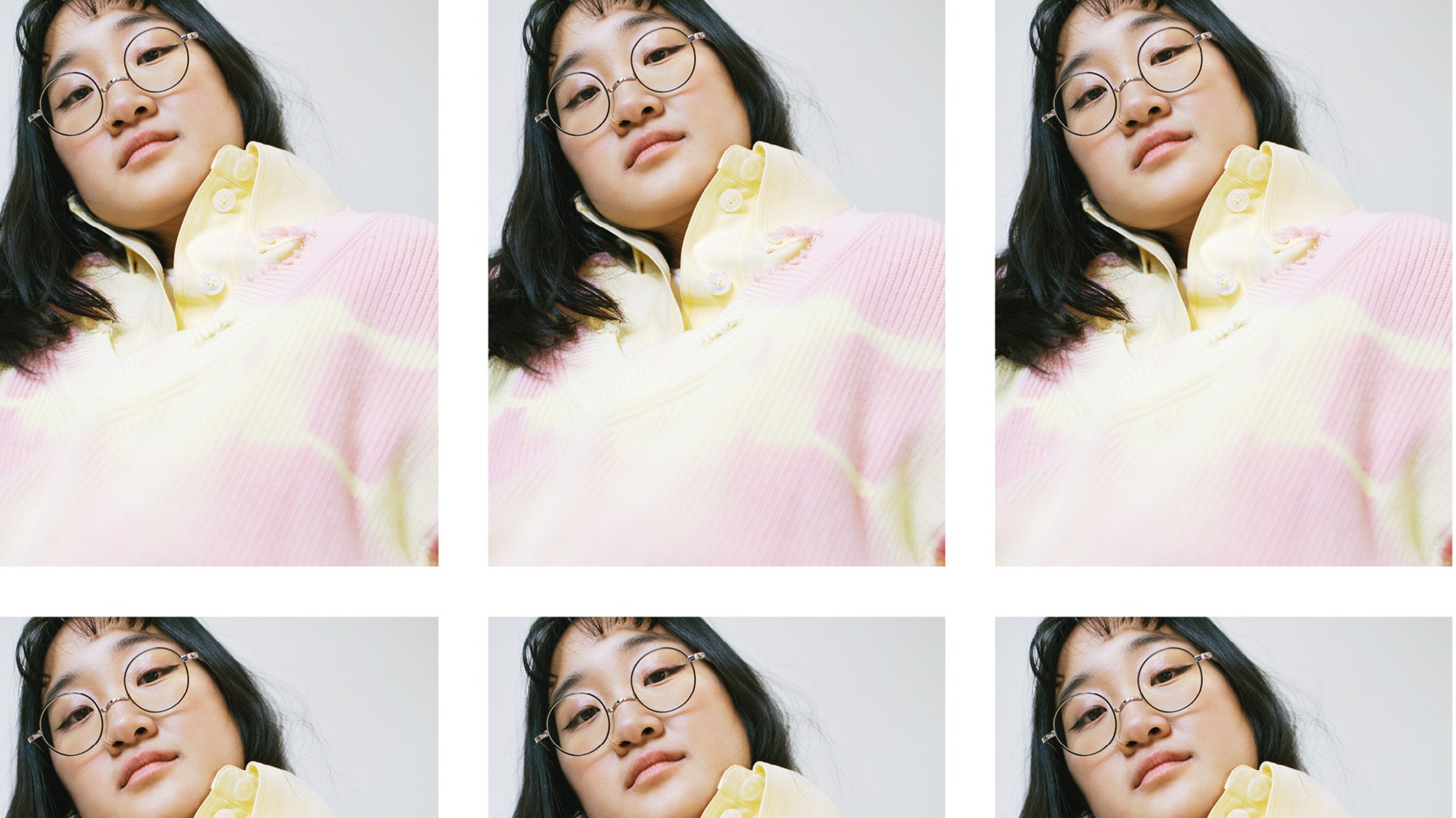This article originally appeared in The Radical Issue, no. 351, Spring 2018.
Kathy Yaeji Lee is sitting at the desk of her childhood bedroom in the suburbs of Seoul when we call her. Her family moved around a lot; she was born in New York, then lived in Atlanta. This was followed by a stint in China and a year in Japan before they finally settled back in South Korea. Reflected in the huge mirror in front of her, she can see the dolls and small trinkets of her youth dotted about as though she never left. Reader, she did. Art school in Pittsburgh enticed the shy teen back to the US six years ago, where she joined the college radio station and discovered a love of underground electronic music, before returning to New York to live in Brooklyn. There she fully immersed herself in the club scene, going to nights solo and making friends on the dancefloor, finding her people, her scene, herself. She began to DJ and produce. “Discovering music was very sudden, like falling deep in love with a brand new person when you’ve been dating someone else for decades,” she says. “It was just this rush.”
Two EPs, a series of impeccable Boiler Room sets and a BBC Sound of 2018 nomination later, she’s one of the world’s most exciting musicians and is giving much needed visibility to, and changing perceptions of, Asian musicians. Seamlessly splicing house and techno while creating a totally dreamlike sensibility, Yaeji’s vocals — sometimes sung, sometimes rapped — are always delivered at an intimate half-whisper. “I feel like I stand in a weird in-between world, where it still has underground tendencies, but maybe it’s more approachable to people that don’t normally listen to weird underground music,” she says. “It’s a really cool position where I can leverage cool ideas and deliver it to people who aren’t used to it.” The highlights of last year’s appropriately-titled EP2 are an ethereal cover of Drake’s passionfruit, a hazy trapped-out drink i’m sippin’ on, and the wildly popular raingurl. For the latter’s awesome music video, shot in a local warehouse space, Yaeji called on friends to produce, direct, SFX shit up and appear alongside her. All neon lights, dry ice and totally free dancing, she counts this collaborative exploration of introspection in the club as her proudest achievement to date.
Yaeji has spent the past month in South Korea juggling press and shows across Asia with her annual dose of family time, this year involving her 85-year-old grandfather tagging along to see her perform for the very first time in Tokyo. Understandably, Yaeji finds herself in a different headspace when she’s in Korea. “I feel like everyone has their own version of that thing where you go home and put on a certain character or face,” she says. “For a long time I felt like I had to hide my nose piercing and my tattoos from my parents, these things they wouldn’t have understood. You know, to appear as their perfect little daughter.”
“Discovering music was very sudden, like falling deep in love with a brand new person when you’ve been dating someone else for decades.”
Museum trips were a staple part of Yaeji’s childhood thanks to her mum, and an exhibition by Korean artist Do Ho Suh sticks out as particularly memorable. He constructs architectural rooms and buildings out of coloured mesh fabrics. The exhibition was about home, with a focus on people who have grown up between places. It hit home, so to speak. “Since I’m in Korea right now, I miss a lot of things about New York, so I feel like home is my Brooklyn apartment. But when I’m in New York and people ask where I’m from, I always say Korea.” This concept of home and confused cultural identity naturally seeps into Yaeji’s work. “Whenever I write music, it’s so local and immediate and prominent for me,” she says. “It’s what I experience day-to-day.” By embracing her Asian-American heritage and moving past a lifetime of feeling like an outsider, she holds a new power and quiet confidence that radiates through both her music and her very being. Gliding smoothly between languages, something that has proven to resonate deeply with fellow Korean-American women, she proudly and visibly celebrates her heritage — and sounds very cool as she does it.
Yaeji’s a strong believer in music as art, and, as well as her Brooklyn apartment, home comes in the form of a cozy Bushwick studio she shares with four ceramicists, a graffiti writer, two chihuahuas and some plants. The space was intended to be a place away from music for her to concentrate on visual art, but inevitably music crept in and Yaeji can usually be found sitting on the floor with her laptop, making music with Ableton. “The way I work is by being super messy and prolific and then fine-tuning it; taking away and adding things very selectively.” She notes that if you work without a specific goal in mind then it’s harder to recognise when you get what you want. “It becomes so emotional and subjective and depends on the mood. It’s a fluctuating process.”
There might be a lot of interest in Yaeji globally, but she’s getting a special sort of attention back in Korea. “The interest has been really great, but for me, a bit of pressure,” she says. “Maybe it’s just because of how I am, or maybe it’s cultural — I just don’t want to disappoint people. I want them to feel proud.” Part of the reason Yaeji sings in Korean is to make her music feel more secretive. So, to perform in Seoul to a crowd singing those private lyrics back to her, understanding every word, must’ve been surreal? “It was really weird and wild and it definitely made me think about how I write lyrics. Acknowledging that there’s a group of listeners that’ll fully understand what I’m talking about.”
Each year Yaeji returns to Korea, she sees a huge increase in the number of clubs and DJs in a city that, when she was a teen, was all about bottle service. A series of recent inspiring conversations with fellow musicians have set her on a mission to do what she can to help develop the burgeoning scene even more, bringing the underground culture of New York to Asia. “It made me super inspired. It’s so exciting and fortunate that I can be in a position to learn and have access to things that I can then bring home and help the culture grow,” she says. “I was speaking to a girl in Japan about how in Brooklyn there are scenes that feel really supportive and safe, especially for POC and LGBTQI communities. There’s some of that in Japan, but in Korea there’s almost none. Hopefully I can help by linking people up, making suggestions and we can make baby steps that way. Then maybe one day I’ll live here again… then I can really put in the work.”

Credits
Text Frankie Dunn
Photography Ben Grieme
Styling Max Clark
Hair Adam Szabo at Frank Reps using R+Co. Make-up Kristi Matamoros at Frank Reps using Dr. Hauschka. Photography assistance Jordan Zuppa. Styling assistance Jay Barrett.
